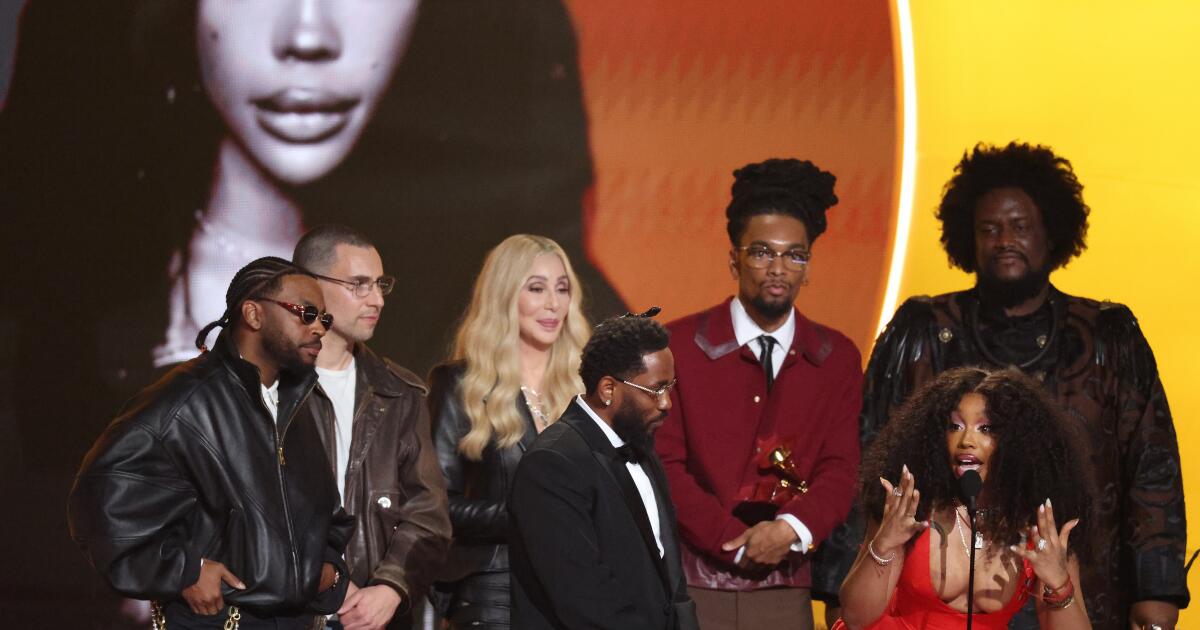‘Like a Virgin’ songwriter Billy Steinberg dies at 75
Billy Steinberg, who wrote the lyrics to some of the biggest pop hits of the 1980s — including Madonna’s “Like a Virgin,” Cyndi Lauper’s “True Colors” and Heart’s “Alone” — died Monday at his home in Brentwood. He was 75.
His death was confirmed by his lawyer, Laurie Soriano, who said the cause was cancer.
For the record:
4:31 p.m. Feb. 16, 2026An earlier version of this post said that Billy Steinberg died at 74. He was 75.
A master of the melodramatic power ballad, Steinberg wrote vividly about the experience of being overwhelmed by love. In “Like a Virgin,” the narrator sings of having been lost in the wilderness — “I was beat, incomplete / I’d been had, I was sad and blue” — only to meet someone who makes the singer feel “shiny and new.” In “Alone,” the narrator lies in a dark room late at night, listening to the clock tick as they ponder an unconfessed infatuation.

“Like a Virgin,” which Steinberg co-wrote with his frequent creative partner Tom Kelly, spent six weeks atop Billboard’s Hot 100 in late 1984 and early 1985. With Kelly, Steinberg went on to score four more No. 1s on the Hot 100: “True Colors,” “Alone,” Whitney Houston’s “So Emotional” and the Bangles’ “Eternal Flame.”
Among the other hits he wrote were the Pretenders’ “I’ll Stand by You,” the Divinyls’ “I Touch Myself,” and “I Drove All Night,” which was recorded by both Lauper and Roy Orbison.
Born in Fresno in 1950, Steinberg moved as a child with his family to Palm Springs, where his father had a business growing table grapes in the Coachella Valley. He started writing songs while studying literature at Bard College in the late ’60s. Yet after his junior year he began having severe anxiety attacks and dropped out of school, as he wrote in a 2004 essay posted on his website. He moved home to Palm Springs and worked on his dad’s vineyards, writing lyrics as he drove around in a red Ford pickup truck.
In the late ’70s, Steinberg formed a new wave band called Billy Thermal — the name pointed to the Coachella Valley town where the vineyards were located — that eventually got signed to the producer Richard Perry’s Planet Records. Billy Thermal made an album that went unreleased, though Linda Ronstadt and Pat Benatar recorded several of the band’s songs; Ronstadt’s version of “How Do I Make You,” from her “Mad Love” LP, hit No. 10 on the Hot 100 in early 1980.
After Billy Thermal broke up, Steinberg formed a group called i-Ten with Kelly, whom he’d met at a party thrown by Fleetwood Mac’s onetime producer, Keith Olsen. The duo released an album in 1983 that featured an early version of “Alone.”
Steinberg won a Grammy Award in 1997 for his work on Celine Dion’s “Falling Into You,” which was named album of the year. He was inducted into the Songwriters Hall of Fame in 2011. His survivors include his wife, Trina, and his sons Ezra and Max.

